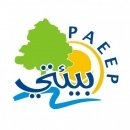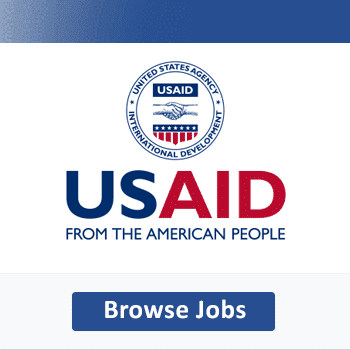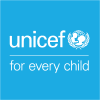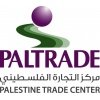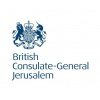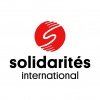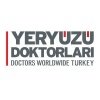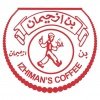Peace and Conflict Impact Assessment (PCIA)
الوصف
Terms of Reference (ToR)
Peace and Conflict Impact Assessment (PCIA) for a planned project in Gaza, oPt.
- Background of the assignment
Palestine Association for Education and Environmental Protection (PAEEP) has been formally registered since 1999 as a local, environmental, community based, non-profit and non-governmental association, working towards transforming the lives of the most vulnerable and disadvantaged communities in Palestine. PAEEP works in four main areas: relief and emergency, environmental protection, capacity building and development and economic empowerment, to enhance the resilience of marginalized groups and to enable them to participate in the development process to build a society in which each individual lives in a healthy, green environment, and enjoys a safe economic and social life. The Associations strategic goals were formulated and built on the basis of the Sustainable Development Goals (SDGs 2016 - 2030), and PAEEP is committed to implementing the SDGs in all its policies. The very purpose of PAEEP is to serve others. Integrating this value in the overall working of PAEEP not only makes PAEEP socially acceptable, but it also makes the Association more responsive to take up societal issues and serve the community. Driven by an honest hankering to leave no one behind, bring about positive change, and ensure dignity for all of humankind, PAEEP works to address existing social ills prevalent in society. As an NGO, PAEEP collaborates and cooperates with other organizations to foster positive change. PAEEP works beyond borders to achieve its organizational goals in particular and societal vision in general.
Planned project.
PAEEP, in a partnership with Diakonie Katastrophenhilfe (DKH), a German emergency aid organization is in the preparation phase for a planned project submitted for funding under the Special Initiative (SI) Displacement of the German Federal Ministry for Economic Cooperation and Development (BMZ). SI Displacement is designed to reduce acute causes of displacement, stabilize host communities and regions, and assist refugees, IDPs and returnees. In countries with a higher or acute potential for conflict escalation, a PCIA is necessary.
The planned project has a focus on livelihoods and community-based Disaster Risk Management (DRM). The project’s overall goal is to enhance the livelihood of Palestinian Youth and stabilizing the housing conditions of most vulnerable households. Specifically, the project aims to
- create new perspectives for income and employment, focusing on 400 youth and particularly women, to promote economic independence and empowerment.
- strengthen the resilience of 2- 3 communities in the face of extreme natural disasters by provision of microgrants to communities at-risk of disaster.
To achieve its objective, 400 young women and men graduated from TVET center will be placed with employers who may be found in small-, medium- and large-scale businesses, in factories and various industries, as well as with skilled worker, individual artisans or tradespersons in their workplace to gain practical skills. Also, during the project PAEEP will enable communities define their own risk mitigation needs and solutions, community groups will be encouraged to develop and submit ideas on how to best prepare themselves for natural or man-made disasters in their communities and how to organize community-led rapid response measures.
It is essential to ensure that the planned project is sensitive to conflict dynamics and does not inadvertently impact negatively upon the levels of conflict in the Gaza Strip.
- Objectives of the PCIA
The primary objectives of the Peace and Conflict Impact Assessment (PCIA) are to:
- deepen our understanding of peace and conflict dynamics (including connectors and dividers) in the project area, including with a gender lens.
- assess how the planned project and the context could interact, particularly to discern and assess the potential favorable and adverse effects of the intended project on communities and individuals in the Gaza Strip, while examining the reciprocal relationship between the project and the local context, which entails understanding how conflict dynamics could influence the project and how the project might, in turn, impact these dynamics.
- assess the relevance of the planned project to peace and security, including:
- Thematic relevance: Are there potential conflict triggers on the horizon that the planned project needs to account for? Does it address issues that contribute to peaceful coexistence and gender equality Is the planned project design conflict sensitive?
- Geographic and community targeting relevance: Does the planned project cover project locations and communities that are particularly affected by fragility and conflict? Does the planned project cover project locations that are particularly affected by refugee movements?
- Relevance of the actors: Does the planned project involve the main actors and those most affected by conflict, fragility and violence? Does the planned project follow an approach, which is sensitive to conflict dynamics, when involving certain actors? Which peace engines is the project leveraging?
- Relevance of modalities: Does the planned project employ appropriate and effective modalities in the context of conflict, fragility and violence?
- recommend strategies and measures to enhance positive impacts and mitigate negative ones.
- provide evidence-based insights to project planners, stakeholders, and decision-makers for informed project design and implementation.
- build capacity of PAEEP staff to accompany future conflict analyses.
- Design, methodology and deliverables
The consultancy work will be focused on the in-depth participatory analysis of the operational conflict, its characteristics, causes and dynamics, its potential impact on the project and vice versa. It should be evident that the PCIA should take a participatory and conflict-sensitive approach. Drawing from the Do No Harm Framework, we aim to have a community-based participatory process in which stakeholders can also make recommendations for the project. The project logframe will be adapted based on the recommendations from the stakeholders.
The consultant/team is requested to outline their suggested approach and methodology as part of their proposal. Beyond engaging relevant stakeholders in the analysis through workshops or other participatory formats, a written summary of findings (max 20 pages) is expected. The written summary of the PCIA will be shared with PAEEP and have approval from DKH and backdonor.
The anticipated time period for the assignment is 20 days between September and October 2023.
Context factors such as public holidays have to be taken into consideration.
- Profile of the selected PCIA consultant/ team
- The conflict analysis consultancy assignment is open to local Gaza expert consultants, with specialist knowledge and research expertise in conflict analysis and peacebuilding as well as development practice and theory.
- Bachelor degree in Peace and Conflict Studies, Conflict Resolution or other related fields.
- Proven experience with conducting PCIAs and familiarity with the academic and policy literature surrounding the causes and consequences of violent conflict.
- Robust experience with data collection and analysis methodologies for PCIAs.
- Excellent facilitation skills in accompanying participatory and gender-sensitive workshops and group discussions in a conflict-sensitive manner.
- Professional experience in humanitarian and development assistance; Proven experience in writing short and concise assessment-type documents that reflect stakeholders’ view and discussions.
- Fluency in English and Arabic, both written and spoken is required.
Interested consultants shall submit their offer by 18/09/2023 to [email protected] citing “PCIA Gaza” in the subject line. The submission must include three elements:
- Technical offer of max 15 pages explaining the proposed design and methodology of the PCIA.
- Presentation of consultant/team including CVs highlighting experience with similar assignments as lead or co-lead, confirmation of availability, contact information of three referees and a sample of a summary reports written for a similar assignment.
- Financial offer including fixed daily rate in USD, all anticipated costs like taxes, travel, accommodation, transportation, insurance, workshop costs etc.
Only complete submissions will be reviewed, and only shortlisted candidates will be contacted for next steps.
For more information, please contact us at: 0597065992.
المكان
قطاع غزة
موعد الإنتهاء
13, Sep, 2023
شارك هذا العطاء




